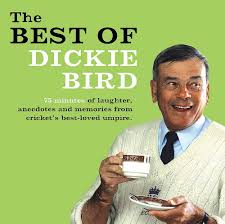The Legacy of Dickie Bird: A Cricketing Icon

Introduction
Dickie Bird, one of cricket’s most cherished figures, is known not only for his remarkable career as an international umpire but also for his charismatic personality and profound impact on the game. His legacy continues to resonate among fans and players alike, making him a significant part of cricketing history.
Career Highlights
Born in Barnsley, England, on July 19, 1933, Harold Dennis “Dickie” Bird began his professional career as a cricketer before transitioning to umpiring in the late 1960s. He officiated his first Test match in 1973 and quickly became recognised for his clear decisiveness and unique style, complete with his trademark bowler’s hat and his iconic raising of his finger to signal a wicket.
Over a career spanning over 20 years, Bird stood in 66 Test matches and 69 One Day Internationals (ODIs). His appearances included notable matches such as the 1983 World Cup final, where he officiated in front of a global audience. Bird’s knowledge of the game, paired with his ability to handle pressure, made him a respected figure in both the players’ and fans’ eyes.
Influence on the Game
Dickie Bird’s influence extends beyond his on-field decisions. He became a beloved character in the cricketing world, known for his entertaining anecdotes and engaging personality. His experience and wisdom have been sought after, and he has often served as a mentor to young umpires. Bird’s commitment to fair play and sportsmanship helped to enhance the integrity of the game, emphasising the essential role umpires play in maintaining the spirit of cricket.
Retirement and Legacy
After retiring in 1996, Bird remained active in the cricket community, often participating in charity events and public speaking engagements. His life and journey through cricket have been depicted in various documentaries and interviews, ensuring that his stories and lessons continue to inspire future generations. In recognition of his contributions, Bird was appointed an MBE (Member of the Order of the British Empire) in 1998, further solidifying his status within the cricketing fraternity.
Conclusion
Dickie Bird’s legacy extends far beyond his esteemed career as an umpire. His passion for the sport, combined with his unique ability to entertain and educate, has made him a national treasure in England and beyond. As cricket continues to evolve, Bird’s influence persists, reminding us of the importance of integrity, personality, and dedication in sport. Looking forward, new generations of cricketers and umpires will undoubtedly be inspired by the incredible journey of Dickie Bird.
